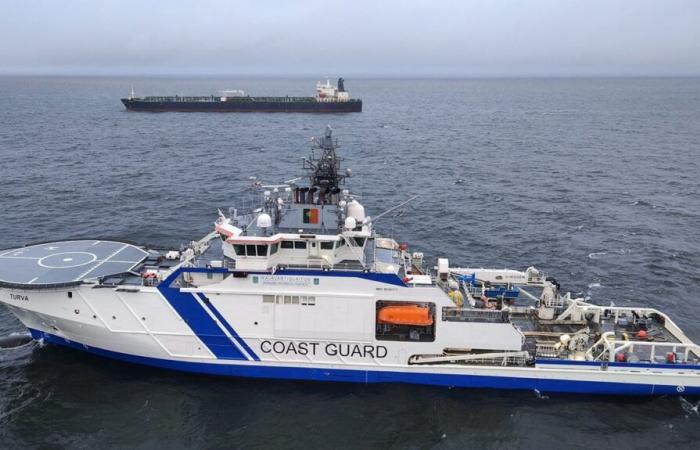The Atlantic Alliance will strengthen its military presence in the Baltic Sea. This was assured on Friday December 27 by its Secretary General, Mark Rutte, at a time when Finland suspects an oil ship coming from a Russian port of being at the origin of the « sabotage » of an underwater electric cable connecting it to Estonia.
Mark Rutte spoke with Finnish President Alexander Stubb, to whom he said « [sa] full solidarity and [son] support “. “NATO will strengthen its military presence in the Baltic Sea”he wrote on the social network
The Estonian government, for its part, announced the sending of patrols at sea to protect its electricity connection with Finland. Estonian Defense Minister Hanno Pevkur hears “immediately send a clear message that we are ready to defend the connections between Estonia and Finland, even with military means”he explained in a press release on Friday.
According to Finnish President Alexander Stubb, the situation is “under control”. “We must continue to collaborate vigilantly to ensure that our sensitive infrastructure is not damaged by external actors”he stressed.
Seven months of work
On Wednesday, Christmas Day, the EstLink 2 electricity cable between Finland and Estonia was damaged, without affecting the electricity supply to the Finns, according to the national operator Fingrid. Very quickly, suspicion fell on an oil tanker sailing in the Baltic Sea at that time: l’Eagle S which, leaving the port of Saint Petersburg, was to take the road to Port Said in Egypt. Flying the flag of the Cook Islands, it is suspected of being part of Russia's “ghost fleet”, these ships which allow it to export its oil by circumventing Western restrictions. The Eagle S's anchor apparently dragged and hit the cable.
The ship was boarded and Finnish police announced on Thursday the opening of an investigation into aggravated sabotage.
The extent of the damage to the EstLink 2 cable is currently impossible to assess, said Tuomas Rauhala, head of electrical system operations at Fingrid. The cable is “out of service and can only be used for electricity transmission once repairs are completed”he added, specifying that these would take around seven months.
The Baltic Sea has been the scene, since Russia's invasion of Ukraine in February 2022, of several similar incidents. These actions, targeting in particular energy and communication infrastructures, are, according to experts and politicians, part of the context of the “hybrid war” led by Russia in this vast area bordered by several NATO members, where Moscow has also entry points.
Latest: two telecommunications cables cut on November 17 and 18 in Swedish territorial waters. A bulk carrier flying the Chinese flag, le Yi Peng 3which was above the area at the time of the incident and has since left it, was in the sights of the Swedish authorities.






